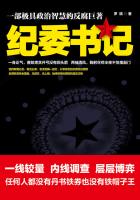Connie was sorting out one of the Wragby lumber rooms. There wereseveral:the house was a warren, and the family never sold anything.SirGeoffery's father had liked pictures and Sir Geoffery's mother had liked cinquecento furniture.Sir Geoffery himself had liked old carved oak chests, vestry chests.So it went on through the generations.Clifford collected very modern pictures, at very moderate prices.
So in the lumber room there were bad Sir Edwin Landseers and pathetic William Henry Hunt birds'nests:and other Academy stuff, enough to frighten the daughter of an R. A.She determined to look through it one day, and clear it all.And the grotesque furniture interested her.
Wrapped up carefully to preserve it from damage and dry-rot was the old family cradle, of rosewood. She had to unwrap it, to look at it.It had a certain charm:she looked at it a longtime.
'It's thousand pities it won't be called for, 'sighed Mrs Bolton, who was helping.'Though cradles like that are out of date nowadays.'
'It might be called for. I might have a child, 'said Connie casually, as if saying she might have a new hat.
'You mean if anything happened to Sir Clifford!'stammered Mrs Bolton.
'No!I mean as things are. It's only muscular paralysis with Sir Clifford—it doesn't affect him, 'said Connie, lying as naturally as breathing.
Clifford had put the idea into her head. He had said:'Of course I may have a child yet.I'm not really mutilated at all.The potency may easily come back, even if the muscles of the hips and legs are paralysed.And then the seed may be transferred.'
He really felt, when he had his periods of energy and worked so hard at the question of the mines, as if his sexual potency were returning. Connie had looked at him in terror.But she was quite quick-witted enough to use his suggestion for her own preservation.For she would have a child if she could:but not his.
Mrs Bolton was for a moment breathless, flabbergasted. Then she didn't believe it:she saw in it a ruse.Yet doctors could do such things nowadays.They might sort of graft seed.
'Well, my Lady, I only hope and pray you may. It would be lovely for you:and for everybody.My word, a child in Wragby, what a difference it would make!'
'Wouldn't it!'said Connie.
And she chose three R. A.pictures of sixty years ago, to send to the Duchess of Shortlands for that lady's next charitable bazaar.She was called'the bazaar duchess', and she always asked all the county to send things for her to sell.She would be delighted with three framed R.A.s.She might even call, on the strength of them.How furious Clifford was when she called!
But oh my dear!Mrs Bolton was thinking to herself. Is it Oliver Mellors'child you're preparing us for?Oh my dear, that would be a Tevershall baby in the Wragby cradle, my word!Wouldn't shame it, neither!
Among other monstrosities in this lumber room was a largish blackjapanned box, excellently and ingeniously made some sixty or seventy years ago, and fitted with every imaginable object. On top was a concentrated toilet set:brushes, bottles, mirrors, combs, boxes, even three beautiful little razors in safety sheaths, shaving-bowl and all.Underneath came a sort of escritoire outfit:blotters, pens, ink-bottles, paper, envelopes, memorandum books:and then a perfect sewing-outfit, with three different sized scissors, thimbles, needles, silks and cottons, darning egg, all of the very best quality and perfectly finished.Then there was a little medicine store, with bottles labelled Laudanum, Tincture of Myrrh, Ess.Cloves and so on:but empty.Everything was perfectly new, and the whole thing, when shut up, was as big as a small, but fat weekend bag.And inside, it fitted together like a puzzle.The bottles could not possibly have spilled:there wasn't room.
The thing was wonderfully made and contrived, excellent craftsmanship of the Victorian order. But somehow it was monstrous.Some Chatterley must even have felt it, for the thing had never been used.It had a peculiar soullessness.
Yet Mrs Bolton was thrilled.
'Look what beautiful brushes, so expensive, even the shaving brushes, three perfect ones!No!and those scissors!They're the best that money could buy. Oh, I call it lovely!'
'Do you?'said Connie.'Then you have it.'
'Oh no, my Lady!'
'Of course!It will only lie here till Doomsday. If you won't have it, I'llsend it to the Duchess as well as the pictures, and she doesn't deserve so much.Do have it!'
'Oh, your Ladyship!Why, I shall never be able to thank you.'
'You needn't try, 'laughed Connie.
And Mrs Bolton sailed down with the huge and very black box in her arms, flushing bright pink in her excitement.
Mr Betts drove her in the trap to her house in the village, with the box. And she had to have a few friends in, to show it:the school-mistress, the chemist's wife, Mrs Weedon the undercashier's wife.They thought it marvellous.And then started the whisper of Lady Chatterley's child.
'Wonders'll never cease!'said Mrs Weedon.
But Mrs Bolton was convinced, if it did come, it would be Sir Clifford's child. So there!
Not long after, the rector said gently to Clifford:
'And may we really hope for an heir to Wragby?Ah, that would be the hand of God in mercy, indeed!'
'Well!We may hope, 'said Clifford, with a faint irony, and at the same time, a certain conviction. He had begun to believe it really possible it might even be his child.
Then one afternoon came Leslie Winter, Squire Winter, as everybody called him:lean, immaculate, and seventy:and every inch a gentleman, as Mrs Bolton said to Mrs Betts. Every millimetre indeed!And with his old-fashioned, rather haw-haw!manner of speaking, he seemed more out of date than bag wigs.Time, in her flight, drops these fine old feathers.
They discussed the collieries. Clifford's idea was, that his coal, even the poor sort, could be made into hard concentrated fuel that would burn at great heat if fed with certain damp, acidulated air at a fairly strong pressure.It had long been observed that in a particularly strong, wet wind the pit-bank burned very vivid, gave off hardly any fumes, and left a fine powder of ash, instead of the slow pink gravel.
'But where will you find the proper engines for burning your fuel?'asked Winter.
'I'll make them myself. And I'll use my fuel myself.And I'll sell electricpower.I'm certain I could do it.'
'If you can do it, then splendid, splendid, my dear boy. Haw!Splendid!If I can be of any help, I shall be delighted.I'm afraid I am a little out of date, and my collieries are like me.But who knows, when I'm gone, there may be men like you.Splendid!It will employ all the men again, and you won't have to sell your coal, or fail to sell it.A splendid idea, and I hope it will be a success.If I had sons of my own, no doubt they would have up-to-date ideas for Shipley:no doubt!By the way, dear boy, is there any foundation to the rumour that we may entertain hopes of an heir to Wragby?'
'Is there a rumour?'asked Clifford.
'Well, my dear boy, Marshall from Fillingwood asked me, that's all I can say about a rumour. Of course I wouldn't repeat it for the world, if there were no foundation.'
'Well, Sir, 'said Clifford uneasily, but with strange bright eyes.'There is a hope. There is a hope.'
Winter came across the room and wrung Clifford's hand.
'My dear boy, my dear lad, can you believe what it means to me, to hear that!And to hear you are working in the hopes of a son:and that you may again employ every man at Tevershall. Ah, my boy!to keep up the level of the race, and to have work waiting for any man who cares to work!—'
The old man was really moved.
Next day Connie was arranging tall yellow tulips in a glass vase.
'Connie, 'said Clifford, 'did you know there was a rumour that you are going to supply Wragby with a son and heir?'
Connie felt dim with terror, yet she stood quite still, touching the flowers.
'No!'she said.'Is it a joke?Or malice?'
He paused before he answered:
'Neither, I hope. I hope it may be a prophecy.'
Connie went on with her flowers.
'I had a letter from Father this morning, 'She said.'He wants to know if I am aware he has accepted Sir Alexander Cooper's Invitation for me for July and August, to the Villa Esmeralda in Venice.'
'July and August?'said Clifford.
'Oh, I wouldn't stay all that time. Are you sure you wouldn't come?'
'I won't travel abroad, 'said Clifford promptly. She took her flowers to the window.
'Do you mind if I go?'she said. You know it was promised, for this summer.
'For how long would you go?'
'Perhaps three weeks.'
There was silence for a time.
'Well, 'said Clifford slowly, and a little gloomily.'I suppose I could stand it for three weeks:if I were absolutely sure you'd want to come back.'
'I should want to come back, 'she said, with a quiet simplicity, heavy with conviction. She was thinking of the other man.
Clifford felt her conviction, and somehow he believed her, he believed it was for him. He felt immensely relieved, joyful at once.
'In that case, 'he said,
'I think it would be all right, don't you?'
'I think so, 'she said.
'You'd enjoy the change?'She looked up at him with strange blue eyes.
'I should like to see Venice again, 'she said, 'and to bathe from one of the shingle islands across the lagoon. But you know I loathe the Lido!And I don't fancy I shall like Sir Alexander Cooper and Lady Cooper.But if Hilda is there, and we have a gondola of our own:yes, it will be rather lovely.I do wish you'd come.'
She said it sincerely. She would so love to make him happy, in these ways.
'Ah, but think of me, though, at the Gare du Nord:at Calais quay!'
'But why not?I see other men carried in litter-chairs, who have been wounded in the war. Besides, we'd motor all the way.'
'We should need to take two men.'
'Oh no!We'd manage with Field. There would always be another man there.'
But Clifford shook his head.
'Not this year, dear!Not this year!Next year probably I'll try.'
She went away gloomily. Next year!What would next year bring?Sheherself did not really want to go to Venice:not now, now there was the other man.But she was going as a sort of discipline:and also because, if she had a child, Clifford could think she had a lover in Venice.
It was already May, and in June they were supposed to start. Always these arrangements!Always one's life arranged for one!Wheels that worked one and drove one, and over which one had no real control!
It was May, but cold and wet again. A cold wet May, good for corn and hay!Much the corn and hay matter nowadays!Connie had to go into Uthwaite, which was their little town, where the Chatterleys were still the Chatterleys.She went alone, Field driving her.
In spite of May and a new greenness, the country was dismal. It was rather chilly, and there was smoke on the rain, and a certain sense of exhaust vapour in the air.One just had to live from one's resistance.No wonder these people were ugly and tough.
The car ploughed uphill through the long squalid straggle of Tevershall, the blackened brick dwellings, the black slate roofs glistening their sharp edges, the mud black with coal-dust, the pavements wet and black. It was as if dismalness had soaked through and through everything.The utter negation of natural beauty, the utter negation of the gladness of life, the utter absence of the instinct for shapely beauty which every bird and beast has, the utter death of the human intuitive faculty was appalling.The stacks of soap in the grocers'shops, the rhubarb and lemons in the greengrocers!the awful hats in the milliners!all went by ugly, ugly, ugly, followed by the plaster-and-gilt horror of the cinema with its wet picture announcements, 'A Woman's Love!', and the new big Primitive chapel, primitive enough in its stark brick and big panes of greenish and raspberry glass in the windows.The Wesleyan chapel, higher up, was of blackened brick and stood behind iron railings and blackened shrubs.The Congregational chapel, which thought itself superior, was built of rusticated sandstone and had a steeple, but not a very high one.Just beyond were the new school buildings, expensivink brick, and gravelled playground inside iron railings, all very imposing, and fixing the suggestion of a chapel and a prison.Standard Five girls were having a singing lesson, just finishing the la-me-doh-la exercises and beginning a'sweet children's song'.Anything moreunlike song, spontaneous song, would be impossible to imagine:a strange bawling yell that followed the outlines of a tune.It was not like savages:savages have subtle rhythms.It was not like animals:animals mean something when they yell.It was like nothing on earth, and it was called singing.Connie sat and listened with her heart in her boots, as Field was filling petrol.What could possibly become of such a people, a people in whom the living intuitive faculty was dead as nails, and only queer mechanical yells and uncanny will-power remained?
A coal-cart was coming downhill, clanking in the rain. Field started upwards, past the big but weary-looking drapers and clothing shops, the post-office, into the little market-place of forlorn space, where Sam Black was peering out of the door of the Sun, that called itself an inn, not a pub, and where the commercial travellers stayed, and was bowing to Lady Chatterley's car.
The church was away to the left among black trees. The car slid on downhill, past the Miners'Arms.It had already passed the Wellington, the Nelson, the Three Tuns, and the Sun, now it passed the Miners'Arms, then the Mechanics'Hall, then the new and almost gaudy Miners'Welfare and so, past a few new'villas', out into the blackened road between dark hedges and dark green fields, towards Stacks Gate.
Tevershall!That was Tevershall!Merrie England!Shakespeare's England!No, but the England of today, as Connie had realized since she had come to live in it. It was producing a new race of mankind, over-conscious in the money and social and political side, on the spontaneous, intuitive side dead, but dead.Half-corpses, all of them:but with a terrible insistent consciousness in the other half.There was something uncanny and underground about it all.It was an under-world.And quite incalculable.How shall we understand the reactions in half-corpses?When Connie saw the great lorries full of steel-workers from Sheffield, weird, distorted smallish beings like men, off for an excursion to Matlock, her bowels fainted and she thought:Ah God, what has man done to man?What have the leaders of men been doing to their fellow men?They have reduced them to less than humanness; and now there can be no fellowship any more!It is just a nightmare.
She felt again in a wave of terror the grey, gritty hopelessness of it all. With such creatures for the industrial masses, and the upper classes as she knew them, there was no hope, no hope any more.Yet she was wanting a baby, and an heir to Wragby!An heir to Wragby!She shuddered with dread.
Yet Mellors had come out of all this!—Yes, but he was as apart from it all as she was. Even in him there was no fellowship left.It was dead.The fellowship was dead.There was only apartness and hopelessness, as far as all this was concerned.And this was England, the vast bulk of England:as Connie knew, since she had motored from the centre of it.
The car was rising towards Stacks Gate. The rain was holding off, and in the air came a queer pellucid gleam of May.The country rolled away in long undulations, south towards the Peak, east towards Mansfield and Nottingham.Connie was travelling South.
As she rose on to the high country, she could see on her left, on a height above the rolling land, the shadowy, powerful bulk of Warsop Castle, dark grey, with below it the reddish plastering of miners'dwellings, newish, and below those the plumes of dark smoke and white steam from the great colliery which put so many thousand pounds per annum into the pockets of the Duke and the other shareholders. The powerful old castle was a ruin, yet it hung its bulk on the low sky-line, over the black plumes and the white that waved on the damp air below.
A turn, and they ran on the high level to Stacks Gate. Stacks Gate, as seen from the highroad, was just a huge and gorgeous new hotel, the Coningsby Arms, standing red and white and gilt in barbarous isolation off the road.But if you looked, you saw on the left rows of handsome'modern'dwellings, set down like a game of dominoes, with spaces and gardens, a queer game of dominoes that some weird'masters'were playing on the surprised earth.And beyond these blocks of dwellings, at the back, rose all the astonishing and frightening overhead erections of a really modern mine, chemical works and long galleries, enormous, and of shapes not before known to man.The head-stock and pit-bank of the mine itself were insignificant among the huge new installations.And in front of this, the game of dominoes stood forever in a sort of surprise, waiting to be played.
This was Stacks Gate, new on the face of the earth, since the war. But as a matter of fact, though even Connie did not know it, downhill half a mile below the'hotel'was old Stacks Gate, with a little old colliery and blackish old brick dwellings, and a chapel or two and a shop or two and a little pub or two.
But that didn't count any more. The vast plumes of smoke and vapour rose from the new works up above, and this was now Stacks Gate:no chapels, no pubs, even no shops.Only the great works', which are the modern Olympia with temples to all the gods; then the model dwellings:then the hotel.The hotel in actuality was nothing but a miners'pub though it looked first-classy.
Even since Connie's arrival at Wragby this new place had arisen on the face of the earth, and the model dwellings had filled with riff-raff drifting in from anywhere, to poach Clifford's rabbits among other occupations.
The car ran on along the uplands, seeing the rolling county spread out. The county!It had once been a proud and lordly county.In front, looming again and hanging on the brow of the sky-line, was the huge and splendid bulk of Chadwick Hall, more window than wall, one of the most famous Elizabethan houses.Noble it stood alone above a great park, but out of date, passed over.It was still kept up, but as a show place.'Look how our ancestors lorded it!'
That was the past. The present lay below.God alone knows where the future lies.The car was already turning, between little old blackened miners'cottages, to descend to Uthwaite.And Uthwaite, on a damp day, was sending up a whole array of smoke plumes and steam, to whatever gods there be.Uthwaite down in the valley, with all the steel threads of the railways to Sheffield drawn through it, and the coal-mines and the steel-works sending up smoke and glare from long tubes, and the pathetic little corkscrew spire of the church, that is going to tumble down, still pricking the fumes, always affected Connie strangely.It was an old market-town, centre of the dales.One of the chief inns was the Chatterley Arms.There, in Uthwaite, Wragby was known as Wragby, as if it were a whole place, not just a house, as it was to outsiders:Wragby Hall, near Tevershall:Wragby, a'seat'.
The miners'cottages, blackened, stood flush on the pavement, with that intimacy and smallness of colliers'dwellings over a hundred years old. They lined all the way.The road had become a street, and as you sank, you forgotinstantly the open, rolling country where the castles and big houses still dominated, but like ghosts.Now you were just above the tangle of naked railway-lines, and foundries and other'works'rose about you, so big you were only aware of walls.And iron clanked with a huge reverberating clank, and huge lorries shook the earth, and whistles screamed.
Yet again, once you had got right down and into the twisted and crooked heart of the town, behind the church, you were in the world of two centuries ago, in the crooked streets where the Chatterley Arms stood, and the old pharmacy, streets which used to lead Out to the wild open world of the castles and stately couchant houses.
But at the corner a policeman held up his hand as three lorries loaded with iron rolled past, shaking the poor old church. And not till the lorries were past could he salute her ladyship.
So it was. Upon the old crooked burgess streets hordes of oldish blackened miners'dwellings crowded, lining the roads out.And immediately after these came the newer, pinker rows of rather larger houses, plastering the valley:the homes of more modern workmen.And beyond that again, in the wide rolling regions of the castles, smoke waved against steam, and patch after patch of raw reddish brick showed the newer mining settlements, sometimes in the hollows, sometimes gruesomely ugly along the sky-line of the slopes.And between, in between, were the tattered remnants of the old coaching and cottage England, even the England of Robin Hood, where the miners prowled with the dismalness of suppressed sporting instincts, when they were not at work.
England, my England!But which is my England?The stately homes of England make good photographs, and create the illusion of a connexion with the Elizabethans. The handsome old halls are there, from the days of Good Queen Anne and Tom Jones.But smuts fall and blacken on the drab stucco, that has long ceased to be golden.And one by one, like the stately homes, they were abandoned.Now they are being pulled down.As for the cottages of England—there they are—great plasterings of brick dwellings on the hopeless countryside.
'Now they are pulling down the stately homes, the Georgian halls are going. Fritchley, a perfect old Georgian mansion, was even now, as Conniepassed in the car, being demolished.It was in perfect repair:till the war the Weatherleys had lived in style there.But now it was too big, too expensive, and the country had become too uncongenial.The gentry were departing to pleasanter places, where they could spend their money without having to see how it was made.'
This is history. One England blots out another.The mines had made the halls wealthy.Now they were blotting them out, as they had already blotted out the cottages.The industrial England blots out the agricultural England.One meaning blots out another.The new England blots out the old England.And the continuity is not Organic, but mechanical.
Connie, belonging to the leisured classes, had clung to the remnants of the old England. It had taken her years to realize that it was really blotted out by this terrifying new and gruesome England, and that the blotting out would go on till it was complete.Fritchley was gone, Eastwood was gone, Shipley was going:Squire Winter's beloved Shipley.
Connie called for a moment at Shipley. The park gates, at the back, opened just near the level crossing of the colliery railway; the Shipley colliery itself stood just beyond the trees.The gates stood open, because through the park was a right-of-way that the colliers used.They hung around the park.
The car passed the ornamental ponds, in which the colliers threw their newspapers, and took the private drive to the house. It stood above, aside, a very pleasant stucco building from the middle of the eighteenth century.It had a beautiful alley of yew trees, that had approached an older house, and the hall stood serenely spread out, winking its Georgian panes as if cheerfully.Behind, there were really beautiful gardens.
Connie liked the interior much better than Wragby. It was much lighter, more alive, shapen and elegant.The rooms were panelled with creamy painted panelling, the ceilings were touched with gilt, and everything was kept in exquisite order, all the appointments were perfect, regardless of expense.Even the corridors managed to be ample and lovely, softly curved and full of life.
But Leslie Winter was alone. He had adored his house.But his park was bordered by three of his own collieries.He had been a generous man in his ideas.He had almost welcomed the colliers in his park.Had the miners notmade him rich!So, when he saw the gangs of unshapely men lounging by his ornamental waters—not in the private part of the park, no, he drew the line there—he would say:'the miners are perhaps not so ornamental as deer, but they are far more profitable.'
But that was in the golden—monetarily—latter half of Queen Victoria's reign. Miners were then'good working men'.
Winter had made this speech, half apologetic, to his guest, the then Prince of Wales. And the Prince had replied, in his rather guttural English:
'You are quite right. If there were coal under Sandringham, I would open a mine on the lawns, and think it first-rate landscape gardening.Oh, I am quite willing to exchange roe-deer for colliers, at the price.Your men are good men too, I hear.'
But then, the Prince had perhaps an exaggerated idea of the beauty of money, and the blessings of industrialism.
However, the Prince had been a King, and the King had died, and now there was another King, whose chief function seemed to be to open soup-kitchens.
And the good working men were somehow hemming Shipley in. New mining villages crowded on the park, and the squire felt somehow that the population was alien.He used to feel, in a good-natured but quite grand way, lord of his own domain and of his own colliers.Now, by a subtle pervasion of the new spirit, he had somehow been pushed out.It was he who did not belong any more.There was no mistaking it.The mines, the industry, had a will of its own, and this will was against the gentleman-owner.All the colliers took part in the will, and it was hard to live up against it.It either shoved you out of the place, or out of life altogether.
Squire Winter, a soldier, had stood it out. But he no longer cared to walk in the park after dinner.He almost hid, indoors.Once he had walked, bare-headed, and in his patent-leather shoes and purple silk socks, with Connie down to the gate, talking to her in his well-bred rather haw-haw fashion.But when it came to passing the little gangs of colliers who stood and stared without either salute or anything else, Connie felt how the lean, well-bred old man winced, winced as an elegant antelope stag in a cage winces from the vulgar stare.The collierswere not personally hostile:not at all.But their spirit was cold, and shoving him out.And, deep down, there was a profound grudge.They'worked for him'.And in their ugliness, they resented his elegant, well-groomed, well-bred existence.'Who's he!'It was the difference they resented.
And somewhere, in his secret English heart, being a good deal of a soldier, he believed they were right to resent the difference. He felt himself a little in the wrong, for having all the advantages.Nevertheless he represented a system, and he would not be shoved out.
Except by death. Which came on him soon after Connie's call, suddenly.And he remembered Clifford handsomely in his will.
The heirs at once gave out the order for the demolishing of Shipley. It cost too much to keep up.No one would live there.So it was broken up.The avenue of yews was cut down.The park was denuded of its timber, and divided into lots.It was near enough to Uthwaite.In the strange, bald desert of this still-one-more no-man's-land, new little streets of semi-detacheds were run up, very desirable!The Shipley Hall Estate!
Within a year of Connie's last call, it had happened. There stood Shipley Hall Estate, an array of red-brick semi-detached'villas'in new streets.No one would have dreamed that the stucco hall had stood there twelve months before.
But this is a later stage of King Edward's landscape gardening, the sort that has an ornamental coal-mine on the lawn.
One England blots out another. The England of the Squire Winters and the Wragby Halls was gone, dead.The blotting out was only not yet complete.
What would come after?Connie could not imagine. She could only see the new brick streets spreading into the fields, the new erections rising at the collieries, the new girls in their silk stockings, the new collier lads lounging into the Pally or the Welfare.The younger generation were utterly unconscious of the old England.There was a gap in the continuity of consciousness, almost American:but industrial really.What next?
Connie always felt there was no next. She wanted to hide her head in the sand:or, at least, in the bosom of a living man.
The world was so complicated and weird and gruesome!The common people were so many, and really so terrible. So she bought as she was goinghome, and saw the colliers trailing from the pits, grey-black, distorted, one shoulder higher than the other, slurring their heavy ironshod boots.Underground grey faces, whites of eyes rolling, necks cringing from the pit roof, shoulders Out of shape.Men!Men!Alas, in some ways patient and good men.In other ways, non-existent.Something that men should have was bred and killed out of them.Yet they were men.They begot children.One might bear a child to them.Terrible, terrible thought!They were good and kindly.But they were only half, Only the grey half of a human being.As yet, they were'good'.But even that was the goodness of their halfness.Supposing the dead in them ever rose up!But no, it was too terrible to think of.Connie was absolutely afraid of the industrial masses.They seemed so weird to her.A life with utterly no beauty in it, no intuition, always'in the pit'.
Children from such men!Oh God, oh God!
Yet Mellors had come from such a father. Not quite.Forty years had made a difference, an appalling difference in manhood.The iron and the coal had eaten deep into the bodies and souls of the men.
Incarnate ugliness, and yet alive!What would become of them all?Perhaps with the passing of the coal they would disappear again, off the face of the earth. They had appeared out of nowhere in their thousands, when the coal had called for them.Perhaps they were only weird fauna of the coal-seams.Creatures of another reality, they were elementals, serving the elements of coal, as the metal-workers were elementals, serving the element of iron.Men not men, but animas of coal and iron and clay.Fauna of the elements, carbon, iron, silicon:elementals.They had perhaps some of the weird, inhuman beauty of minerals, the lustre of coal, the weight and blueness and resistance of iron, the transparency of glass.Elemental creatures, weird and distorted, of the mineral world!They belonged to the coal, the iron, the clay, as fish belong to the sea and worms to dead wood.The anima of mineral disintegration!
Connie was glad to be home, to bury her head in the sand. She was glad even to babble to Clifford.For her fear of the mining and iron Midlands affected her with a queer feeling that went all over her, like influenza.
'Of course I had to have tea in Miss Bentley's shop, 'she said.
'Really!Winter would have given you tea.'
'Oh yes, but I daren't disappoint Miss Bentley.'Miss Bentley was a shallow old maid with a rather large nose and romantic disposition who served tea with a careful intensity worthy of a sacrament.
'Did she ask after me?'said Clifford.
'Of course!—. may I ask your Ladyship how Sir Clifford is!—I believe she ranks you even higher than Nurse Cavell!'
'And I suppose you said I was blooming.'
'Yes!And she looked as rapt as if I had said the heavens had opened to you. I said if she ever came to Tevershall she was to come to see you.'
'Me!Whatever for!See me!'
'Why yes, Clifford. You can't be so adored without making some slight return.Saint George of Cappadocia was nothing to you, in her eyes.'
'And do you think she'll come?'
'Oh, she blushed!and looked quite beautiful for a moment, poor thing!Why don't men marry the women who would really adore them?'
'The women start adoring too late. But did she say she'd come?'
'Oh!'Connie imitated the breathless Miss Bentley, 'your Ladyship, if ever I should dare to presume!'
'Dare to presume!how absurd!But I hope to God she won't turn up. And how was her tea?'
'Oh, Lipton's and very strong. But Clifford, do you realize you are the Roman de la rose of Miss Bentley and lots like her?'
'I'm not flattered, even then.'
'They treasure up every one of your pictures in the illustrated papers, and probably pray for you every night. It's rather wonderful.'
She went upstairs to change.
That evening he said to her:
'You do think, don't you, that there is something eternal in marriage?'
She looked at him.
'But Clifford, you make eternity sound like a lid or a long, long chain that trailed after one, no matter how far one went.'
He looked at her, annoyed.
'What I mean, 'he said, 'is that if you go to Venice, you won't go in thehopes of some love affair that you can take au grand sérieux, will you?'
'A love affair in Venice au grand sérieux?No.I assure you!No, I'd never take a love affair in Venice more than au très petit sérieux.'
She spoke with a queer kind of contempt. He knitted his brows, looking at her.
Coming downstairs in the morning, she found the keeper's dog Flossie sitting in the corridor outside Clifford's room, and whimpering very faintly.
'Why, Flossie!'she said softly.'What are you doing here?'
And she quietly opened Clifford's door. Clifford was sitting up in bed, with the bed-table and typewriter pushed aside, and the keeper was standing at attention at the foot of the bed.Flossie ran in.With a faint gesture of head and eyes, Mellors ordered her to the door again, and she slunk out.
'Oh, good morning, Clifford!'Connie said.'I didn't know you were busy.'Then she looked at the keeper, saying good morning to him. He murmured his reply, looking at her as if vaguely.But she felt a whiff of passion touch her, from his mere presence.
'Did I interrupt you, Clifford?I'm sorry.'
'No, it's nothing of any importance.'
She slipped out of the room again, and up to the blue boudoir on the first floor. She sat in the window, and saw him go down the drive, with his curious, silent motion, effaced.He had a natural sort of quiet distinction, an aloof pride, and also a certain look of frailty.A hireling!One of Clifford's hirelings!'The fault, dear Brutus, is not in our stars, but in ourselves, that we are underlings.'
Was he an underling?Was he?What did he think of her?
It was a sunny day, and Connie was working in the garden, and Mrs Bolton was helping her. For some reason, the two women had drawn together, in one of the unaccountable flows and ebbs of sympathy that exist between people.They were pegging down carnations, and putting in small plants for the summer.It was work they both liked.Connie especially felt a delight in putting the soft roots of young plants into a soft black puddle, and cradling them down.On this spring morning she felt a quiver in her womb too, as if the sunshine had touched it and made it happy.
'It is many years since you lost your husband?'she said to Mrs Bolton asshe took up another little plant and laid it in its hole.
'Twenty-three!'said Mrs Bolton, as she carefully separated the young columbines into single plants.'Twenty-three years since they brought him home.'
Connie's heart gave a lurch, at the terrible finality of it.'Brought him home!'
'Why did he get killed, do you think?'she asked.'He was happy with you?'
It was a woman's question to a woman. Mrs Bolton put aside a strand of hair from her face, with the back of her hand.
'I don't know, my Lady!He sort of wouldn't give in to things:he wouldn't really go with the rest. And then he hated ducking his head for anything on earth.A sort of obstinacy, that gets itself killed.You see he didn't really care.I lay it down to the pit.He ought never to have been down pit.But his dad made him go down, as a lad; and then, when you're over twenty, it's not very easy to come out.'
'Did he say he hated it?'
'Oh no!Never!He never said he hated anything. He just made a funny face.He was one of those who wouldn't take care:like some of the first lads as went off so blithe to the war and got killed right away.He wasn't really wezzle-brained.But he wouldn't care.I used to say to him:“You care for nought nor nobody!”But he did!The way he sat when my first baby was born, motionless, and the sort of fatal eyes he looked at me with, when it was over!I had a bad time, but I had to comfort him.“It's all right, lad, it's all right!”I said to him.And he gave me a look, and that funny sort of smile.He never said anything.But I don't believe he had any right pleasure with me at nights after; he'd never really let himself go.I used to say to him:Oh, let thysen go, lad!—I'd talk broad to him sometimes.And he said nothing.But he wouldn't let himself go, or he couldn't.He didn't want me to have any more children.I always blamed his mother, for letting him in th'room.He'd no right t'ave been there.Men makes so much more of things than they should, once they start brooding.'
'Did he mind so much?'said Connie in wonder.
'Yes, he sort of couldn't take it for natural, all that pain. And it spoilt his pleasure in his bit of married love.I said to him:If I don't care, why should you?It's my look-out!—But all he'd ever say was:It's not right!'
'Perhaps he was too sensitive, 'said Connie.
'That's it!When you come to know men, that's how they are:too sensitive in the wrong place. And I believe, unbeknown to himself he hated the pit, just hated it.He looked so quiet when he was dead, as if he'd got free.He was such a nice-looking lad.It just broke my heart to see him, so still and pure looking, as if he'd wanted to die.Oh, it broke my heart, that did.But it was the pit.'
She wept a few bitter tears, and Connie wept more. It was a warm spring day, with a perfume of earth and of yellow flowers, many things rising to bud, and the garden still with the very sap of sunshine.
'It must have been terrible for you!'said Connie.
'Oh, my Lady!I never realized at first. I could only say:Oh my lad, what did you want to leave me for!—That was all my cry.But somehow I felt he'd come back.'
'But he didn't want to leave you, 'said Connie.
'Oh no, my Lady!That was only my silly cry. And I kept expecting him back.Especially at nights.I kept waking up thinking:Why he's not in bed with me!—It was as if my feelings wouldn't believe he'd gone.I just felt he'd have to come back and lie against me, so I could feel him with me.That was all I wanted, to feel him there with me, warm.And it took me a thousand shocks before I knew he wouldn't come back, it took me years.'
'The touch of him, 'said Connie.
'That's it, my Lady, the touch of him!I've never got over it to this day, and never shall. And if there's a heaven above, he'll be there, and will lie up against me so I can sleep.'
Connie glanced at the handsome, brooding face in fear. Another passionate one out of Tevershall!The touch of him!For the bonds of love are ill to loose!
'It's terrible, once you've got a man into your blood!'she said.'Oh, my Lady!And that's what makes you feel so bitter. You feel folks wanted him killed.You feel the pit fair wanted to kill him.Oh, I felt, if it hadn't been for the pit, an'them as runs the pit, there'd have been no leaving me.But they allwant to separate a woman and a man, if they're together.'
'If they're physically together, 'said Connie.
'That's right, my Lady!There's a lot of hard-hearted folks in the world. And every morning when he got up and went to th'pit, I felt it was wrong, wrong.But what else could he do?What can a man do?'
A queer hate flared in the woman.
'But can a touch last so long?'Connie asked suddenly.'That you could feel him so long?'
'Oh my Lady, what else is there to last?Children grows away from you. But the man, well!But even that they'd like to kill in you, the very thought of the touch of him.Even your own children!Ah well!We might have drifted apart, who knows.But the feeling's something different.It's'appen better never to care.But there, when I look at women who's never really been warmed through by a man, well, they seem to me poor doolowls after all, no matter how they may dress up and gad.No, I'll abide by my own.I've not much respect for people.'














